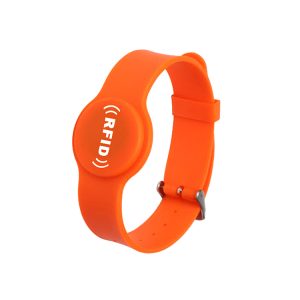Radio Frequency Identification (RFID) technology has rapidly gained popularity across numerous industries due to its versatility and efficiency in asset tracking, inventory management, and beyond. From retail to healthcare, RFID applications continue to revolutionize operational processes, enhance security, and improve customer experiences.
1. Retail Industry: In retail, RFID technology is employed for inventory management, enabling retailers to accurately track stock levels in real time. RFID tags attached to merchandise allow for automated inventory counts, reducing out-of-stock situations and improving overall supply chain efficiency. Additionally, RFID-enabled self-checkout systems enhance the shopping experience by enabling quick and convenient transactions.
2. Healthcare Sector: RFID plays a vital role in healthcare for tracking medical equipment, monitoring patient flow, and ensuring medication safety. Hospitals utilize RFID tags on medical devices and equipment to streamline inventory management and prevent loss or theft. Patient wristbands with embedded RFID tags enable healthcare professionals to accurately identify patients, access medical records, and track their movements within medical facilities, improving efficiency and patient safety.
3. Logistics and Supply Chain Management: Logistics companies leverage RFID technology to optimize supply chain operations, from warehouse management to distribution and delivery. RFID tags attached to pallets, containers, and packages provide real-time visibility into the location and status of shipments, allowing for efficient inventory tracking, route optimization, and timely delivery. This enhances overall supply chain visibility and responsiveness, leading to cost savings and improved customer satisfaction.
4. Access Control and Security: RFID-based access control systems are widely used in commercial buildings, educational institutions, and government facilities to regulate entry and monitor personnel movements. RFID cards or badges issued to employees and authorized personnel contain unique identification codes that grant access to designated areas. This enhances security by preventing unauthorized access and enabling accurate tracking of individuals within secured premises.
5. Asset Tracking and Management: RFID technology enables organizations to effectively track and manage valuable assets, such as equipment, vehicles, and tools. By affixing RFID tags to assets, companies can monitor their location, usage, and maintenance history in real time. This streamlines asset tracking processes, reduces loss or theft, and ensures optimal utilization of resources, ultimately enhancing operational efficiency and cost-effectiveness.
6. Livestock and Agriculture: In the agriculture and livestock industries, RFID tags are utilized for animal identification, tracking, and traceability. RFID ear tags are attached to livestock for individual identification and monitoring of health, breeding, and feeding activities. This facilitates accurate record-keeping, disease control, and compliance with regulatory requirements, improving overall productivity and sustainability in agriculture.
7. Waste Management: RFID technology is increasingly employed in waste management systems for efficient waste collection, sorting, and recycling. RFID tags embedded in waste bins or containers enable municipalities and waste management companies to monitor bin status, optimize collection routes, and track waste disposal activities. This enhances operational efficiency, reduces environmental impact, and promotes sustainable waste management practices.
In conclusion, the widespread adoption of RFID technology across various industries underscores its immense potential to transform operational processes, enhance security, and improve productivity. As RFID technology continues to evolve and become more cost-effective, we can expect to see even broader applications and innovative solutions that drive efficiency and innovation across diverse sectors. Looking ahead, the future of connectivity will undoubtedly be shaped by advancements in RFID technology, creating a more interconnected and seamless operational environment. With the ability to greatly improve supply chain management, asset tracking, and inventory control, RFID technology is poised to play a pivotal role in shaping the future of connectivity across industries. As organizations continue to harness the power of RFID, we can anticipate a future where real-time data and insights drive decision-making and unlock new opportunities for growth and advancement.
![Rfid Tag manufacturer [Wholesale | OEM | ODM]](https://www.fjrfidfactory.com/wp-content/uploads/2024/04/logo.webp)






